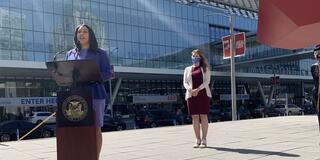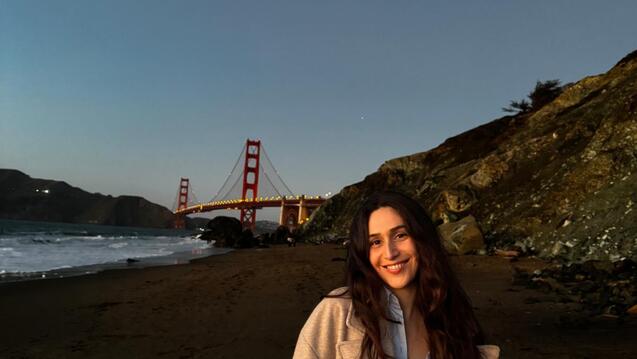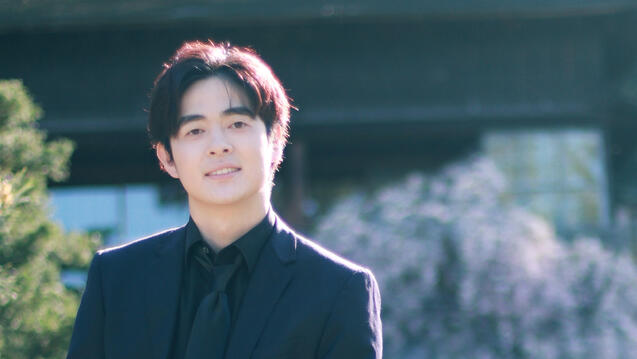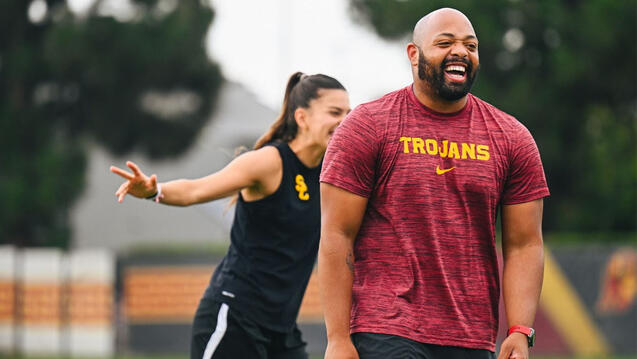When COVID Struck, She Answered the Call

Since February 2020, when Mayor London Breed declared a local emergency, San Francisco has seen 37,000 cases of COVID-19. Since last January, 647,000 residents have been vaccinated. And since the pandemic began, Adrienne Bechelli MPA ’20 has worked 90 hours a week.
Bechelli is a deputy director for the city’s Department of Emergency Management. She and her team of 20 “work to protect everyone in the city during emergencies, especially the most vulnerable among us,” she said.
Her main job for the past 17 months: lead San Francisco’s response to the coronavirus.
“Right now we have about 1,200 people working on the pandemic citywide,” she said. “We have a whole bunch of health workers, of course, but we also have others, like librarians who work as site managers at hotels for the homeless, poll workers repurposed as interpreters at testing and vaccination sites, and accountants working as contact tracers.”
She said she isn’t alone in working long hours.
“A lot of us work this hard. I’m not unique. I’m just really passionate about serving the people of this city, and every hour that I should have spent sleeping is totally worth it to me if just one fewer person contracts COVID.”
A Sense of Service
Bechelli said serving in local government was an easy choice for her. “I grew up in a public-service household. Both of my parents worked for the city. In high school, when my friends were getting summer jobs at Forever 21 or Jamba Juice, I got an internship with the board of supervisors.”
In 2018, while she was working as an emergency planner for the San Francisco Public Utilities Commission, she enrolled in the Master of Public Administration program at USF — the same program from which Mayor Breed graduated in 2013.
Bechelli enrolled at USF to learn how to lead, she said. “I like that the MPA program is integrated — you learn about the public sector, private sector, and nonprofit sector all working together.” She was also drawn to USF because it mixes her personal and professional values, she said. “The Jesuit mindset is about being people with and for others — there’s no better frame for working in local government than that.”
A Life, Lived
Bechelli lives in the Oceanview neighborhood with her husband, Brett, and their French bulldog, Flash.
In the few hours of the week that she’s not working or sleeping, what does she do for fun?
“I like to garden. I wrestle with Flash. I really like cooking but not baking. Baking is too precise,” she said.
Her advice to USF students?
Do: “Listen to classmates who don’t think like you do, and who have different experiences than you do. They will teach you so much more than you realize.”
Don’t: “Get too hung up on your major. Take classes you find interesting, whether or not they’re a part of your major. Sometimes you find a career path down the road that wasn’t very relevant to your major, so if you take classes that make you enjoy learning, you’ll have skills that can take you anywhere.”
Her top takeaway from USF?
“I have two,” she said. “One was from Rich Callahan. He assigned a book called The Art of Possibility that talked about one special rule called Rule Number Six: don’t take yourself so damn seriously. My other takeaway was the ‘failure bow’ from a class with Peter Wright. When you fail, you stand up, put your arms up to the sky and you say, ‘Thank you, I failed!’ By doing that you minimize the embarrassment of failure and you maximize what you learn from that failure.”
An example of failure from her time in public service?
“When we opened COVID-19 vaccination sites across the city, I thought that everybody would want the vaccine, but I was wrong,” she said. “One day I was standing outside a vaccine site in the Bayview and I asked a man walking down the street if he wanted to be vaccinated. He said to me, ‘No way. You’ll put a computer chip in me so you can track my every move so you can put me in jail.’
“I thought to myself, What? You don’t trust me, an official representative of the city? But then it occurred to me that he has no reason to trust the city — or the police, or any other institution. In that moment I realized that intention doesn’t matter because perception is reality for all of us, and feelings can be just as true as facts. So thank you, I failed! And I look forward to doing it again.”


